| Composer's Voice Concert | ![[ Vox Novus - the new voice for contemporary music ]](http://www.voxnovus.com/img/Vox_Novus_Logo_black.png) |
| Contemporary Visions | |
| April 11, 2003 | |
| A.R.T South Oxford Space 138 South Oxford Street Brooklyn, New York 11217 |
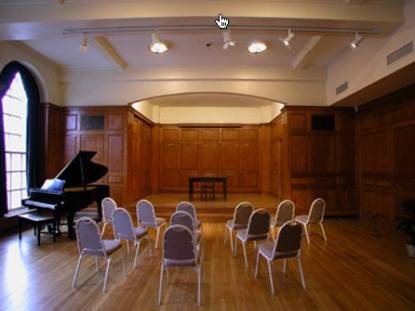 |
Robert Voisey is the host of this "Composer's Voice" concert speaking not only about his musical style and his aesthetic but his vision for Vox Novus, an organization he founded to promote composers and their works. |
| Robert Voisey is the host of this "Composer's Voice" concert speaking not only about his musical style and his aesthetic but his vision for Vox Novus, an organization he founded to promote composers and their works. Featured performer Christine Perea, playing Flute, and Bass Flute will be accompanied by Robert Voisey who will also be singing his pieces hunger and hunger; as well as performances from Patricia Sonego, Michael Eisenberg, and Ju Ping Song | |
| Title | Composers | Performers |
| Foolish Fantasies | Robert Voisey | Christine Perea, flute |
| Love in the Early Morning: Two Songs about Making Love to Milkmen |
Joelle Wallach | Patricia Sonego, voice and Michael Eisenberg, piano |
| Positive Thinking | Anne Deane | Christine Perea, alto flute and tape |
| Taint | Robert Voisey | Christine Perea, flute |
| Tainted Tree | Robert Voisey | Robert Voisey, tenor and Marco Oppedisano, electric guitar |
| Thirst | Robert Voisey | Electronics |
| Hunger | Robert Voisey | Robert Voisey, voice and electronics |
| Lust | Robert Voisey | Robert Voisey, voice and electronics |
| Oiseau Miro | James Romig | Christine Perea, flute |
| Chant de femmes | Howard Sandroff | Christine Perea, piccolo, flute, alto flute, and electronics |
| The Night Watch (Assurance and The Night Watch) | Joelle Wallach | Patricia Sonego, soprano and Michael Eisenberg, piano |
| Run Rabbit Run | Robert Voisey | Christine Perea, flute and Ju-Ping Song, piano |
| Performers | |
| Pianist and harpsichordist Michael Eisenberg has been presented by Carnegie Hall in New York City as a recitalist and chamber musician in an on-going series of 17th century Italian repertoire. Mr. Eisenberg has appeared with the New York Virtuosi Symphony, Queens Orchestra, and the Convent Cathedral Choir. He has also toured internationally with The Harlem Theater and been featured on National Public Radio in the United States. He is the pianist for the CD Patricia Sonego A Simple Pleasure. Mr. Eisenberg is a recipient of the Sylvia Marlowe Fellowship for Harpsichord. He is the harpsichordist for the Ensemble for the Seicento and appears on the group's debut CD Forbidden Dances (Dorian/EMA), which received an outstanding review in Early Music Magazine. | |
| Christine Perea began playing the flute at the age of 10 in Detroit, Michigan studying with Clem Barone and Shaul Ben-Meir of the Detroit Symphony Orchestra. She earned a B.M. in Flute Performance from DePaul University in Chicago where she studied flute with Mary Stolper and Mary Brown and Baroque music with Roger Goodman. While in Chicago, Ms. Perea also served as principal flutist and piccolo player for two years with the Chicago Classical Symphony Orchestra under Maestro Joseph Glymph. In 1998, she moved to New York City to study contemporary music and music technology at New York University. Here, she studied flute with Linda Chesis, Keith Underwood, and Robert Dick and pursued contemporary chamber studies, free improvisation, and electro-acoustic music studies with Dr. Esther Lamneck. In June of 2000, she earned her M.M. in Flute Performance at NYU, but has remained matriculated to pursue a PhD in Performing Arts, Music Composition and Performance. Her research goals include writing a dissertation pertaining to the history of electro-acoustic music for the flute with emphasis on the use of timbre in this repertoire and a pedagogical guide to playing the alto and bass flutes, of which she is an avid performer. In addition to being a student at NYU, Christine is also a member of the adjunct faculty. Her future performance schedule will include collaborations with the Vox Novus contemporary composers organization under the direction of Robert Voisey. An active supporter of new music, she has performed New York premiers of works by Rodrigo Sigal, Lawrence Moss, Rene Mogensen, Jin Hi Kim, and Will Redmond. | |
| Soprano Patricia Sonego made her operatic debut in New York City as "the young, pretty and inexperienced telephone operator" in the world premiere of American composer Jack Beeson's Sorry, wrong number. As a member of the "strong supporting cast", she received an enthusiastic review from Robert Prag of Opera News. She has performed on CBC television, been heard on radio, and seen in numerous recitals. She was heard most recently in recital at Toronto's Cathedral Church of St. James, where reviewer Trisha Hickey of The National Post stated "voice of an angel --- a beguiling voice hailed for its true sensitivity and drama". Ms. Sonego's debut CD is entitled Patricia Sonego A Simple Pleasure and includes the premiere recording of American opera and song composer Seymour Barab's song cycle The Rivals. Ms. Sonego will be performing Kafka Fragmente by György Kurtág in an intermedia production entitled Kafka In Love with Autumn Leaf Performance in Toronto. | |
| Ju-Ping Song is an avid proponent of contemporary music, and has been recognized as such by critics from The Eagle and The Boston Globe. Her deep interest in this field has led her to pursue collaborations with other like-minded artists at new music centers such as the Darmstadt Workshop in Germany, the Tanglewood Music Center, the Solo Recital Series of New Music in Florence, multi-media projects with Klub Katarakt in Hamburg, the Manhattan School Contemporary Music division, the NYU New Music Ensemble and Composers' Forum, and the Lincoln Center Film Music evenings at Walter Reade Theatre. Among her achievements are premieres of works by Magnus Lindberg, Heinz Holliger, Per Nřrgĺrd, James Mobberley, Andrea Cavallari, Jan Feddersen, and numerous works by up and coming composers. A regular guest to the Annual Florence Youth Orchestra Festival, she has had occasion to perform Mozart and Beethoven concertos with l'Orchestre de Chambre de Lausanne, the Bromley Chamber Orchestra and the Winterthur Symphony. Performances have taken her to Paris, Hamburg, Oldenburg, Florence, Camerino, Amsterdam, London. This summer she will travel to Italy and Romania, where she will perform Mozart concerto K.467 and the premiere of Andrea Cavallari's Piano Concerto with the Symphony Orchestra under the direction of Michael Beck, and to Japan, where she has been invited to participate in the Akiyosidai Contemporary Music Seminar and Festival. When she is not traveling. Ms. Song lives and works in New York City, where she is currently working on her Ph.D. at New York University. Ms. Song has recorded works by Andrea Cavallari and Ron Mazurek on the Capstone label. | |
| Composers | |
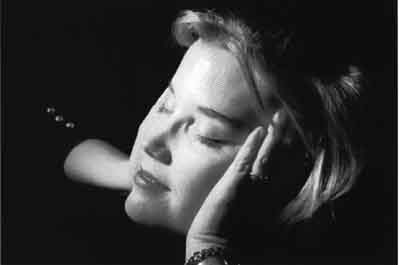 |
Anne Deane joined the faculty of Iowa State University in 2001 as an assistant professor in the Department of Music. She teaches music composition, theory and music technology. She holds advanced degrees from Oberlin Conservatory and University of California at Santa Barbara. Before coming to Iowa State University's Department of Music as Assistant Professor of Music, Dr. Deane was assistant researcher in the Department of Music at University of California, Santa Barbara (CREATE), and associate director of the University of California system-wide Digital Media Innovation Program (DiMI). Her chamber and orchestral music is performed frequently at festivals, universities and venues throughout the nation and internationally including, Hong Kong's City Hall, Carnegie Recital Hall, the Göteborgs Konstmuseum, San Jose Tech Museum, Ojai Music Festival, and the Chautauqua Music Festival Orchestra. Dr. Deane is also a member of the Virtual Reality Application Center faculty. Her research interests include multimedia live performance using intelligent interactive production systems leading to "Virtual Opera" (sensor-based lighting and sound production, virtual set technology and virtual reality immersive environments). At VRAC, she continues to spearhead new work on prototypes in association with UCLA's HyperMedia Studio, University of California at Santa Barbara's Center for Research of Electronic Art Technology, and the Computer Vision and Robotics Research Laboratory at the University of California at San Diego. I compose using acoustic and computer generated music in an effort to create cathartic experiences for my audience. When composing I draw from an integrated intellectual, psychological and emotional source from my inner voice, drawn from my life experiences. For me, it is the emotional aspect of this source that provides true universality, directness, and poignancy. It is important that my compositions be musically and emotionally accessible to both the performer and listener. My goal is to write music that speaks to the soul, compelling the performer and listener to become emotionally and intellectually involved, to encourage creative listening, while attaining a high degree of aesthetic content and artistic satisfaction. - Anne Deane |
| James Romig (b. 1971) has been performing and composing music since age five. His compositions have been performed throughout the United States and Europe in recitals, music festivals, and as accompaniment to dance. In the tradition of his musical mentors, Charles Wuorinen and Milton Babbitt, Romig's music celebrates dramatic balance, exuberant virtuosity, and rigorous formal integrity. Romig holds a Ph.D. in music theory and composition from Rutgers University, and undergraduate and masters degrees in music from the University of Iowa. A dedicated educator, he gives frequent lectures and masterclasses, including recent talks at Westminster Choir College Conservatory, the Interlochen Arts Academy, and The Juilliard School. Romig has taught at Rutgers University, Bucknell University, the University of Iowa, Pittsburg State University, and is currently on faculty at Western Illinois University. He also serves as music director and principal conductor of The Society for Chromatic Art, a contemporary-music ensemble based in New York City. | |
| Howard Sandroff (b. 1949) is currently Director of the Computer Music Studio and Senior Lecturer in Music at The University of Chicago and Professor of Sound Art with the Radio/Sound Department of Columbia College. He is formerly the Music Director and Conductor of Chicago's New Art Ensemble. A Chicago native, Howard Sandroff received the Master of Music degree with Honors in Composition from the Chicago Musical College of Roosevelt University and completed advanced studies in computer music and audio systems at the Massachusetts Institute of Technology. His composition teachers have included Robert Lombardo and Ben Johnston. He has received composition fellowships from the National Endowment for the Arts, the Athena Foundation, the Illinois Arts Council, and research grants from Columbia College, Chicago Artists Abroad, The University of Chicago, the Yamaha Music Foundation and others. | |
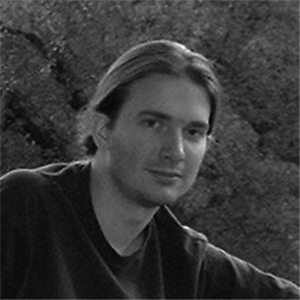 |
"Robert Voisey composes music as a natural part of his life. Substantial compositions can take months to complete, or they can appear in one or two days, full blown in both concept and in detail. Voisey has developed an original and versatile system of interlocking, modulating modes that blend elements of eastern and western musical processes. The resulting compositions reflect a wonderful merging of spontaneous energy and disciplined technique. Voisey's music offers a multitude of pleasures to performers and audiences alike. This is music worth hearing again and again." - Noah Creshevsky
Voisey values himself as a renaissance man. His disciplines include music, computer science, math, art, and poetry. In the midst of accomplishing his Bachelor of Arts at the State University of New York at Stony Brook, he traveled to Israel to study with the composers Oded Zehavi and Aiten Schteinberg. Voisey returned to New York two years later to resume his studies with Noah Creshevsky and George Brunner at the City University of New York at Brooklyn College. After a long hiatus, he returned to his background of computer science creating music with electronic media rather than limiting himself to conventional instruments. In Israel, Voisey debuted several compositions at Tel Hai, Bar-Ilan, and Jerusalem. He also enjoyed performances broadcasted on Kol Muscia (the voice of music) Israeli National Radio. Currently composing in Harlem, New York he has several compositions debut in venues in New York City as well as abroad. Recently his compositions have debuted in Buenos Aires, Argentina with La Scala de San Telmo. |
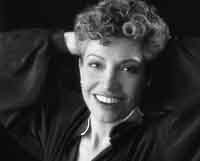 |
Joelle Wallach composes music for orchestra, chamber ensembles, solo voices and choruses. Her String Quartet 1995 was the American Composers Alliance nominee for the 1997 Pulitzer Prize in Music. The New York Philharmonic Ensembles premiered her octet, From the Forest of Chimneys, written to celebrate their 10th anniversary; and the New York Choral Society commissioned her secular oratorio, Toward a Time of Renewal, for 200 voices and orchestra to commemorate their 35th Anniversary Season in Carnegie Hall. Wallach's ballet, Glancing Below, a 1999 Juilliard Dance Theater showcase production originally commissioned by the Carlisle Project, was premiered in Philadelphia during the summer of 1994, entered the repertory of the Hartford Ballet in February 1995, and received its New York City premiere that June. As early as 1980 her choral work, On the Beach at Night Alone, won first prize in the Inter-American Music Awards. Wallach grew up in Morocco, but makes her home in New York City, where she was born. Her early training in piano, voice, theory, bassoon and violin included study at the Juilliard Preparatory Division, and she earned bachelors and masters degrees at Sarah Lawrence College and Columbia University respectively. In 1984 the Manhattan School of Music, where she studied with John Corigliano, granted her its first doctorate in composition. |
Program Notes: |
| The "Love in the Early Morning" songs are graceful character pieces. Each has undertones of repressed sexual desire and melancholy. In the first song, "Milkman, Eggs Please", I imagine a married woman, aged thirty something, who is a faithful, dutiful wife and mother. She is titillated by the youthful energy and beauty of her milkman. Driven by her repressed desire for this youth, she rises early each morning before the rest of her family, puts on her dress and make-up, and waits to hear the clink of the glass bottles so she can greet him. While she waits, she imagines a sexual encounter with him. The saga continues in the second song, "Making Love to the Milkman". Feeling a little guilty, she compares the milkman's red hair to her own son's. She is immediately absorbed again by his appearance and expresses her sexual desire through a description of his bottles and eggs, taking it straight to a climax. The song ends on a melancholy note: realizing he has none of these feelings for her, she is grateful for his pleasant greeting, which makes her feel alive again. She is resolved to remain satisfied with his "human kindness". |
| There is an ominous feeling of desperation and fear of being alone in both songs of "The Nightwatch". In the first song, "Assurance", the protagonist seems to be assuring herself that no matter how much "rain will come" in her life, there is a whole wide world out there to take care of her. The joyous, lilting quality of the music of the second song, "The Nightwatch", is in sharp contrast to its implication: since I left you, I am so alone that it is always winter, "even when the weather warms"; and out of desperation I "welcome the wolf of my wanting". |
|
Positive Thinking was created at The University of California at Santa Barbara Center for Computer Music Research and Composition. It was commissioned by flutist Betsey Cuffel with support from the Santa Barbara Music Club, a Pillsbury Grant from the Santa Barbara Foundation and the Leni Fe Bland Foundation. The text was written by Cleveland-based composer/poet Fred Chance who was diagnosed with HIV four years previous to the composition of this piece. All the voices on the tape were generated from Mr. Chance's narration of the poem. They were analyzed on a Next machine using LPC (Linear Predictive Coding) and then were sometimes combined with alto flute gestures, so that, upon close hearing, the flute speaks. The alto flute part was written in close association with Ms. Cuffel who provided valuable input to the creative process. Slides of human cells were projected on to a fifteen-foot backdrop during the premiere. They were taken by Dr. Mary Ann Jordan of Dr, Leslie Wilson's Microtubule and Pharmacology Lab (USCB). The piece is dedicated to Mr. Chance who died on December 5, 1993.
Positive Thinking By Fred Chance I was thinking about you just the other day And I was thinking about cells. You know - tiny little cells. Well specifically, I was thinking about the cells which started out inside my body and ended up (one way or another) inside your body. And I think I want them back. Yes, I want them all back. Oh, how I wish that I could have Every last one of them back. |
|
Oiseau Miró, commissioned by a consortium of New York area flutists in 2000, was premiered by John McMurtery at Christ and St. Stephen's Church in New York City in March, 2001. The basic structure of the composition comprises two simultaneously unfolding strands of musical information, constructed such that the lines are similar at the beginning, progressing to wide divergence in the middle, and then gradually becoming identical by the end. As the lines digress, the performer is often required to juggle two lines at once, interpolating staccato figures into legato notes of long duration. The work's title is inspired by Joan Miró's painting Femmes, Oiseau, Etoiles (Women, Bird, Stars) in the permanent collection of the Des Moines Art Center. |
|
Chant de femmes (1996) for Flutes and Electronic Sounds In June 1996, I was in Paris for a performance and some work at IRCAM. While loitering, one afternoon, in the Stravinsky Plaza right outside the Pompidou Center I was all of the sudden enveloped by a very numerous group of French women. Everyone was talking, conversations overlapped while one lone man, at the front, spoke in an authoritative manner while pointing to the Pompidou Center. The women ignored him. It finally occurred to me that he was the tour guide and that although none of the women seemed to be listening to his description of the architecture of the building, I was in the midst of a tour. What struck me as most puzzling and interesting was that although my French is "nothing to write home about", I couldn't understand a single word. The women must be from the provinces. It wasn't the Parisian French that I was used to and since I couldn't find the meaning, all those simultaneous conversations became only sounds. Beautiful, somewhat confusing, but melodic sounds; high pitched, low pitched with a myriad of articulation that hinted at some abstract organization. It wasn't until later that evening that I realized that right before ears was Mary Stolper's piece, the one I was supposed to start immediately upon returning home. - Howard Sandroff The fruit of this experience is "Chant de femmes" (song of women or women's song) for flutes and electronic sounds was commissioned by Mary Stolper, and first performed at her recital in November 1996. The work is in three movements which are performed without pause. The first movement for piccolo, second for alto flute and the third for C flute. A short coda for alto flute follows movement three. The electronic sounds, which are played back directly from the computer, DAT or CD, are all processed flutes using a host of signal processing software/techniques. While the final product is not quite the same as the original experience, it is consistent with my musical ideal of using a single, static sound object that, rather than develop, is varied by continually changing associations |
|
Vox Novus exists to promote the composers, musicians, and producers of contemporary music. To accomplish this, Vox Novus sponsors concerts and a core group of musicians who perform New Music. The Vox Novus community also allies itself with other organizations to hold many concerts in different regions throughout the world. Through these alliances, we promote concerts in an exchange of talent, ideas, and resources. The music community has a long tradition of being pan-geographic, and this idea has only reinforced the concert process. Eager audiences are recruited from different areas of the world and thus further the exposure of contemporary music. The Internet is the new frontier for the contemporary composer. The ability to connect a single individual to billions around the world is among the greatest inventions to come to the human race. Vox Novus is connecting our members with interested individuals throughout the world via the Internet. Through its website, Vox Novus provides resources to the contemporary composer, public access to the new music of its members and an effective means to distribute their work. Our website, which attracts hundreds of visitors each day, is offered in both English and Spanish, and will soon offer French and Portuguese to include all of the official languages of the Americas. While this has been accomplished on a limited budget, our vision for the future is almost without limit. We are creating a community in which contemporary music in accessible scores is easy to find, listen to, read, and procure. This community also provides composers with the opportunity to promote music easily while allowing them to choose to make entire works free for the public to listen to and read, make excerpts available with the complete score restricted for purchase or request, or to keep their scores completely restricted, with only the description and instrumentation available with inroads as to how the composition can be acquired. Our goal to distribute music is not only for the benefit of the composers, but also to support musicians and audiences. In the 21st century, musicians and composers use the technologies of contemporary society. Reliance on royal patronage, or academia is no longer viable for the contemporary artist. As society and technology change, we too must change. All over the world, composer collectives are bringing vitality and creative opportunities to contemporary composers and the audiences they wish to reach. These exciting new works of art must be performed and heard for the cycle of creativity to be completed. A society thrives when musicians are free to express themselves through their work. Just as Robert Schumann, in his time, championed Chopin and Brahms, we to are championing the work of our composer members. |
| Funding by | |||
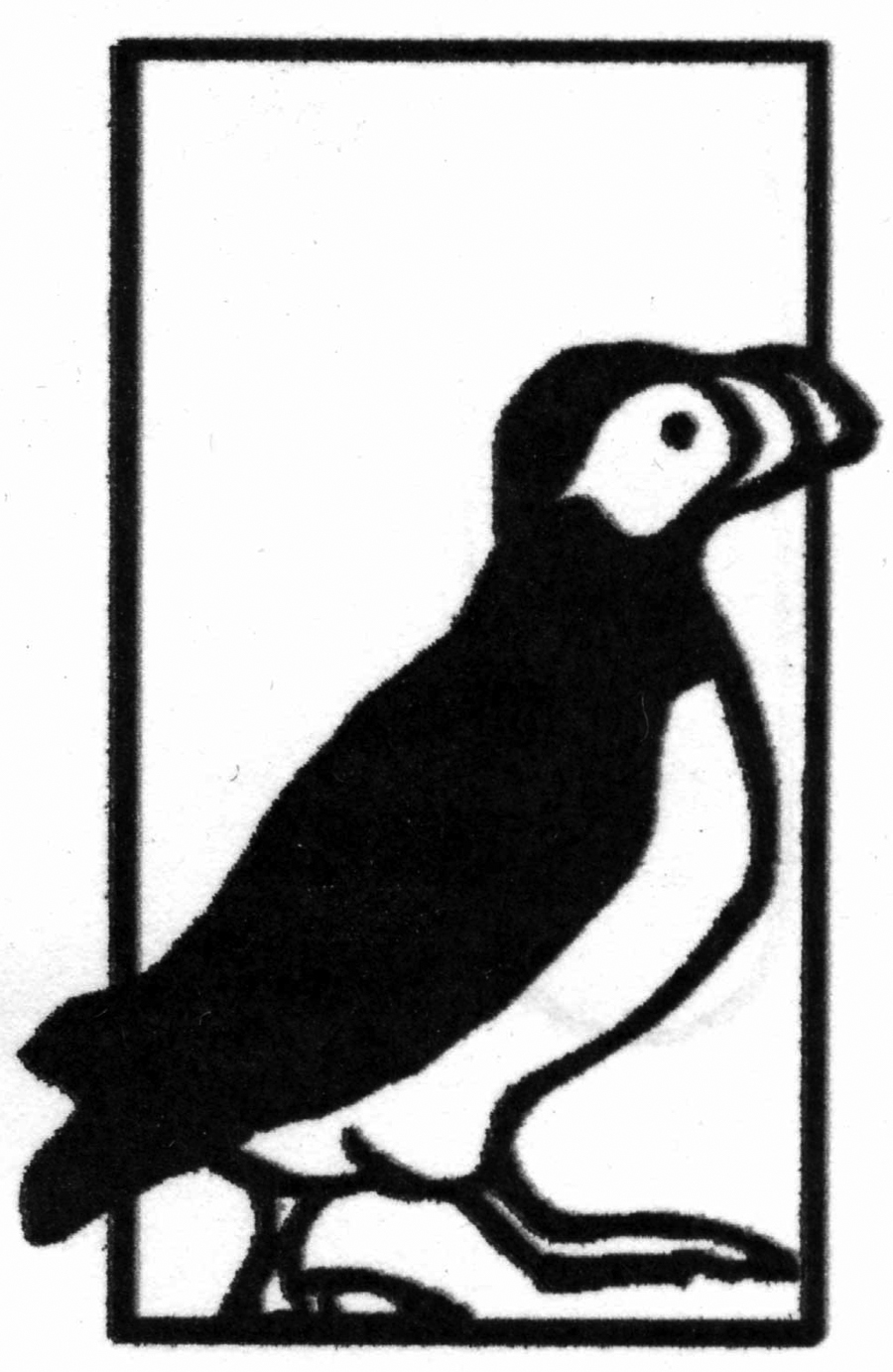 |
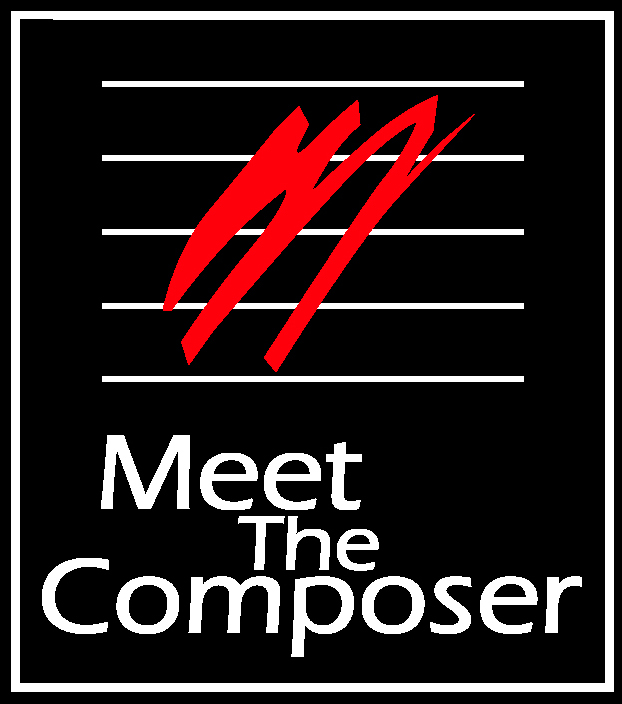 |
||
| Funding also provided by the Puffin Foundation, "...continuing the dialogue between art and lives of ordinary people." | |||
| Funding from Meet The Composer, Inc. is provided with the support of NY State Council on the Arts, NYC Department of Cultural Affairs, ASCAP, Virgil Thomson Foundation, Jerome Foundation, JP Morgan Chase, Mary Flagler Cary Charitable Trust, The Eleanor Naylor Dana Charitable Trust, The Greenwall Foundation, and National Endowment for the Arts. | |||
| Brought to you by | |||
 |
 |
||
| Home | ||||||||||||
| Calendar | ||||||||||||
| History | ||||||||||||
| Opportunities | ||||||||||||
| Vox Novus | ||||||||||||
| Site Map | ||||||||||||
| Contact | ||||||||||||
| Hosted by Malted/Media and Kalvos & Damian's New Music Bazaar | ||||||||||||
![[ Vox Novus - the new voice for contemporary music ]](http://www.voxnovus.com/img/Vox_Novus_Logo_black.png) | ||||||||||||
![[ Composer's Voice ]](http://www.voxnovus.com/img/Composers_Voice_Collaboration_Logo.png) | ||||||||||||